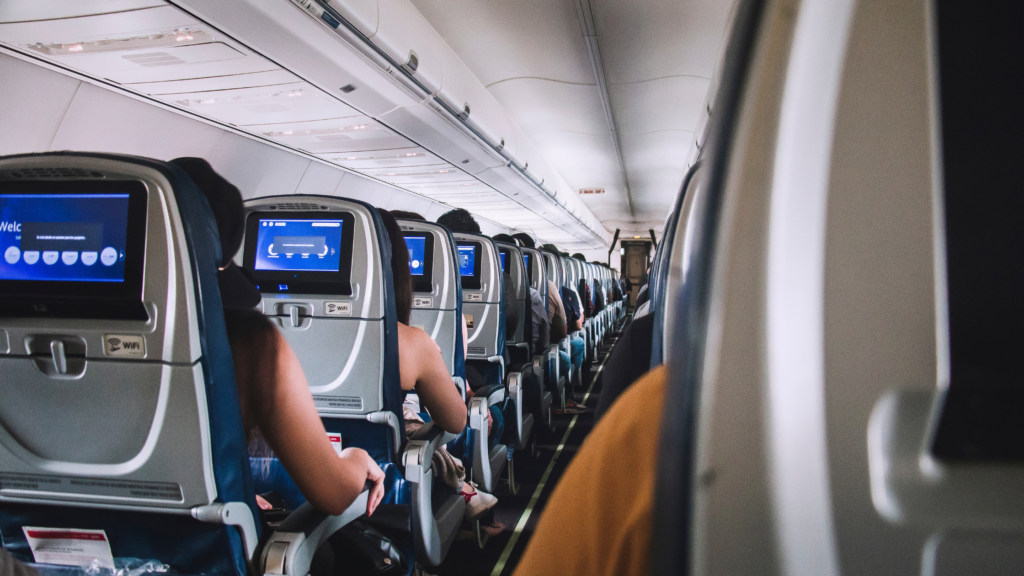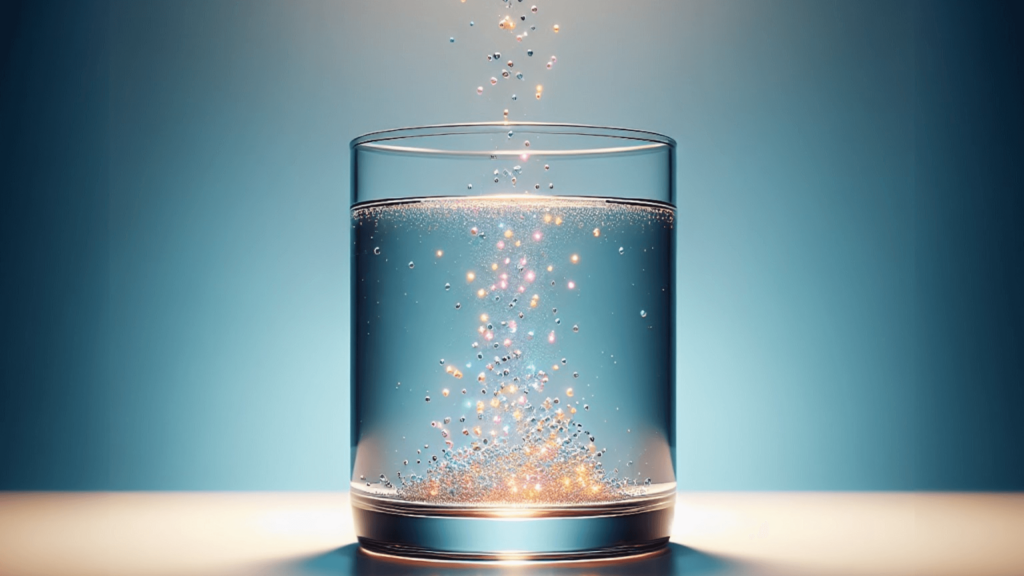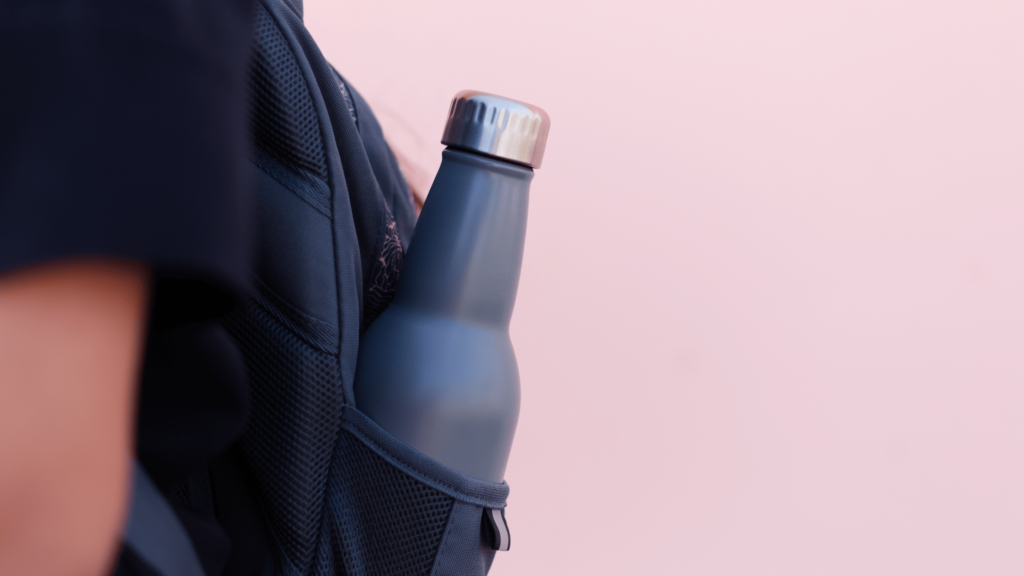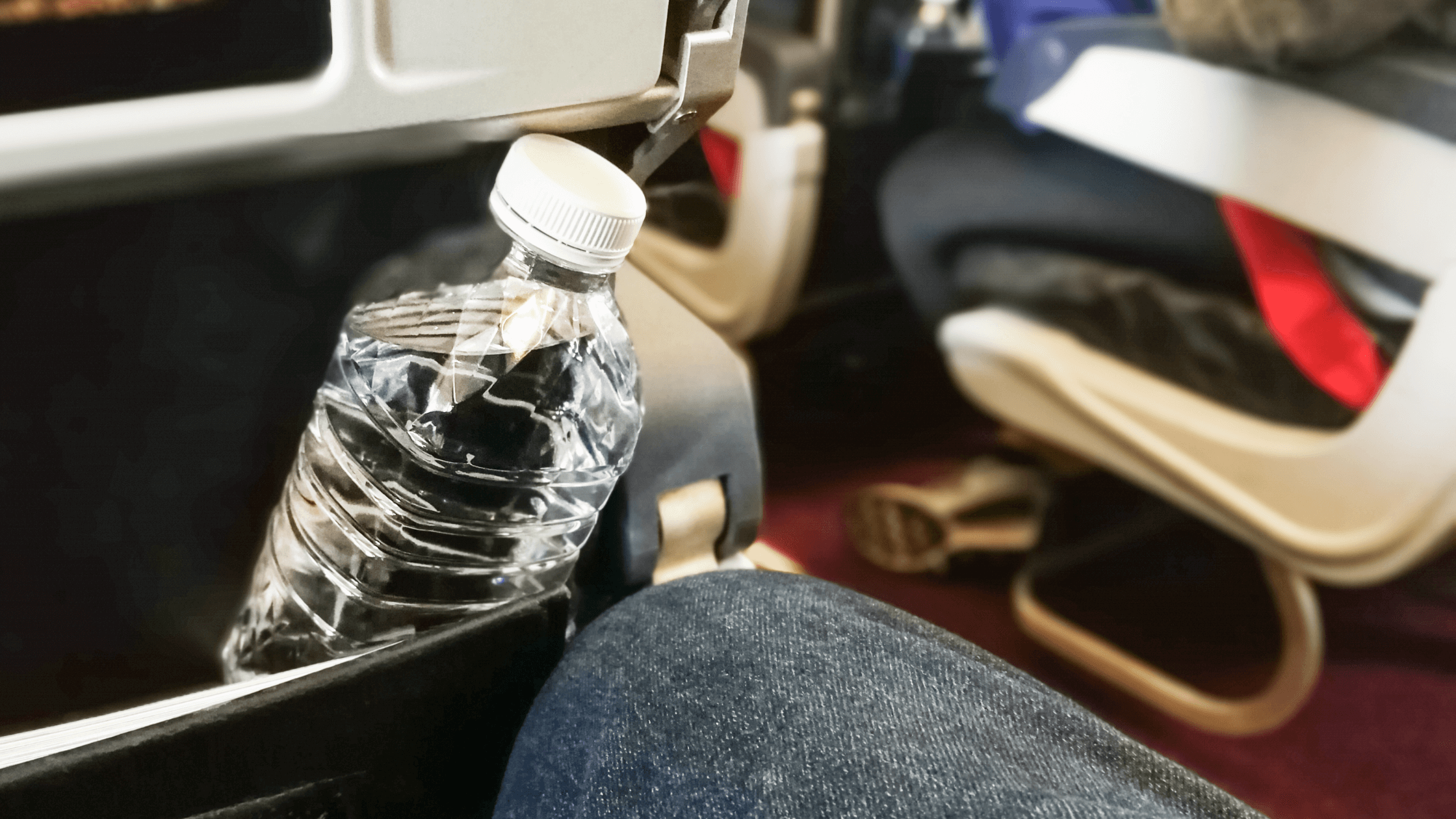Flying can be an exciting adventure, but it often comes with the uncomfortable side effect of dehydration. Proper hydration and electrolytes, especially when traveling, are important for energy levels, sleep, muscle function, and reducing jet lag. Brands like LMNT and DripDrop offer electrolyte solutions that can help prevent dehydration and boost energy while flying.
Quick look
- Flying can lead to dehydration due to low cabin pressure, poor air quality, and low humidity.
- Dehydration can cause fatigue, dizziness, and muscle cramps during travel.
- Electrolytes help maintain proper hydration, energy levels, sleep quality, muscle function, and reduce jet lag.
- Bringing a reusable water bottle, hydrating before the flight, and snacking on water-rich foods are simple ways to prevent dehydration.
Why flying is dehydrating

Cabin pressure
At cruising altitudes, the cabin pressure is lower than at sea level. This reduced pressure means there is less oxygen available, causing your body to work harder to get the oxygen it needs. This increased respiratory rate leads to more moisture being lost through breathing, contributing to dehydration.
Poor air quality
Airplane cabins are notorious for their dry air, with humidity levels as low as 10-20%, compared to the usual 35-65% we experience on the ground. This dry air draws moisture from your skin and mucous membranes, leading to quicker dehydration. Although the air is filtered to remove germs, it doesn’t add moisture back, exacerbating the drying effect.
Temperature changes/humidity
The low humidity and cool temperature in the cabin air causes moisture to evaporate from your skin and respiratory tract more rapidly, which can accelerate or exacerbate dehydration.
The effects of dehydration
Dehydration during air travel can lead to a range of symptoms, from mild discomfort to more serious health problems. Symptoms to watch out for include:
- Dry eyes, mouth, and skin
- Headaches
- Dizziness
- Fatigue
- Confusion
- Irritability
In extreme cases, dehydration leads to serious health problems such as urinary tract infections and kidney stones.
While mild dehydration may seem harmless, it can lead to major discomfort during air travel. Staying hydrated is crucial to avoid these negative impacts and ensure a more comfortable travel experience.
The unsung hero for proper travel hydration: electrolytes

What are electrolytes?
Electrolytes are minerals in your body that carry an electric charge. They are essential for various bodily functions, including regulating fluid balance, muscle contractions, and nerve signaling. Common electrolytes include sodium, potassium, calcium, and magnesium.
Why are electrolytes important during air travel?
1. Proper hydration
Electrolytes such as sodium, potassium, and chloride play a key role in regulating the body’s fluid balance by facilitating the movement of water in and out of cells. This is especially important in the dry environment of an airplane cabin, where humidity levels are significantly lower than normal, leading to faster dehydration. Electrolyte-enhanced drinks can help maintain hydration better than plain water because they replenish the minerals lost through sweat and respiration.
2. Energy
Electrolytes help sustain energy levels by supporting various metabolic processes. They assist in maintaining proper cellular function and fluid balance, which are essential for converting food into energy efficiently. This can be particularly beneficial during flights, where reduced oxygen levels and dehydration can cause fatigue and low energy.
3. Sleep
Adequate levels of electrolytes can improve sleep quality during flights by maintaining the body’s fluid balance and preventing muscle cramps, which can disrupt sleep. Magnesium, in particular, has a calming effect on the nervous system and can help promote better sleep, which is beneficial for reducing the impact of jet lag.
4. Muscle function
Electrolytes are vital for muscle function, including muscle contraction and relaxation. Dehydration can lead to an imbalance of electrolytes, causing muscle cramps and spasms. Maintaining proper electrolyte levels can prevent these issues, ensuring that muscles function correctly during and after a flight.
5. Reducing jet lag
Jet lag is one of the dreaded side effects of long-distance travel, but taking electrolytes might help mitigate some of the symptoms, such as fatigue and cognitive impairment. By maintaining hydration and supporting cellular functions, electrolytes help the body adjust more quickly to different time zones and reduce the overall discomfort of jet lag.
Other tips to prevent mid-flight dehydration

Bring a reusable water bottle
One of the simplest yet most effective ways to stay hydrated during a flight is to bring a reusable water bottle. Fill it up after passing through security and keep it handy throughout the flight. This not only ensures you always have access to water but also helps you monitor your intake.
Front-load your hydration
Begin hydrating well before your flight. Drinking plenty of water in the hours leading up to your departure can help ensure you start your journey well-hydrated. This strategy can help offset the drying effects of the airplane environment and reduce the risk of dehydration symptoms later in your flight.
Snack on water-rich foods
Bringing along snacks that are high in water content can also help you stay hydrated. Fruits like oranges, strawberries, and cucumbers, as well as vegetables like celery and bell peppers, are excellent choices. These foods provide hydration while also offering essential vitamins and minerals that support overall health.
Avoid alcohol and caffeine
Both alcohol and caffeine are diuretics in excess, meaning they can increase urine production and lead to dehydration. Try to limit or avoid these beverages while flying and opt for water or electrolyte-rich drinks instead. If you do choose to drink alcohol or caffeine, make sure to compensate with additional water intake.
Wear comfortable clothing
Loose, comfortable clothing can help prevent overheating and excessive sweating, which can contribute to dehydration. Layers are also a good idea, as they allow you to adjust your clothing based on the cabin temperature, keeping you comfortable and minimizing fluid loss through sweat.
Bottom line
Flying can be a dehydrating experience, but by understanding the importance of electrolytes and implementing practical hydration strategies, you can mitigate its effects. So next time you’re on a long flight try bringing a reusable water bottle and fill it with some electrolytes to see the difference. You won’t regret it.


